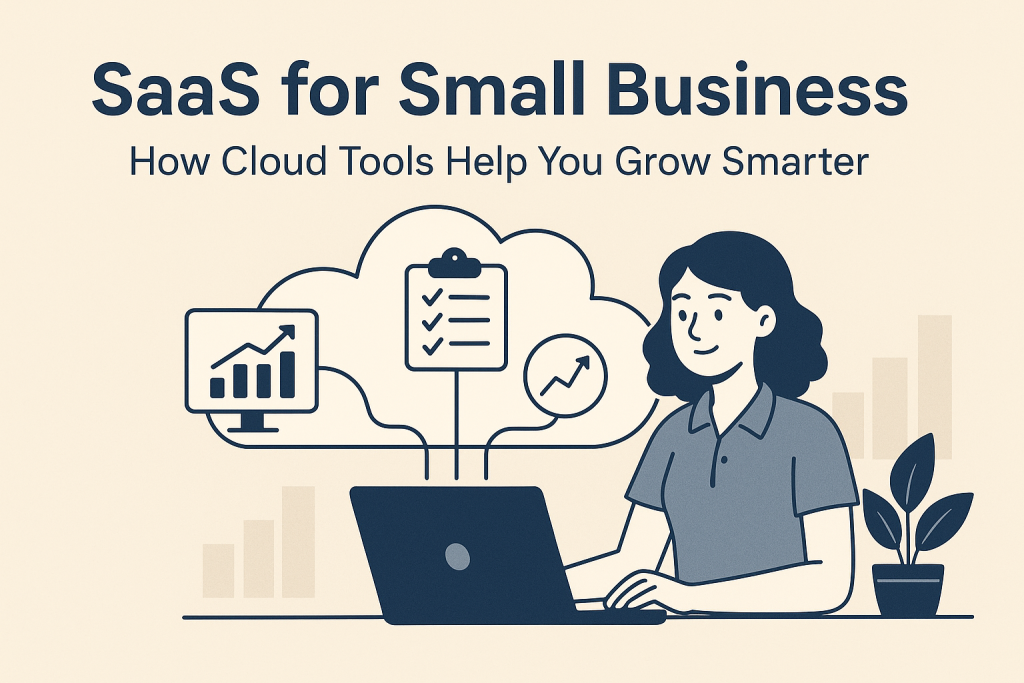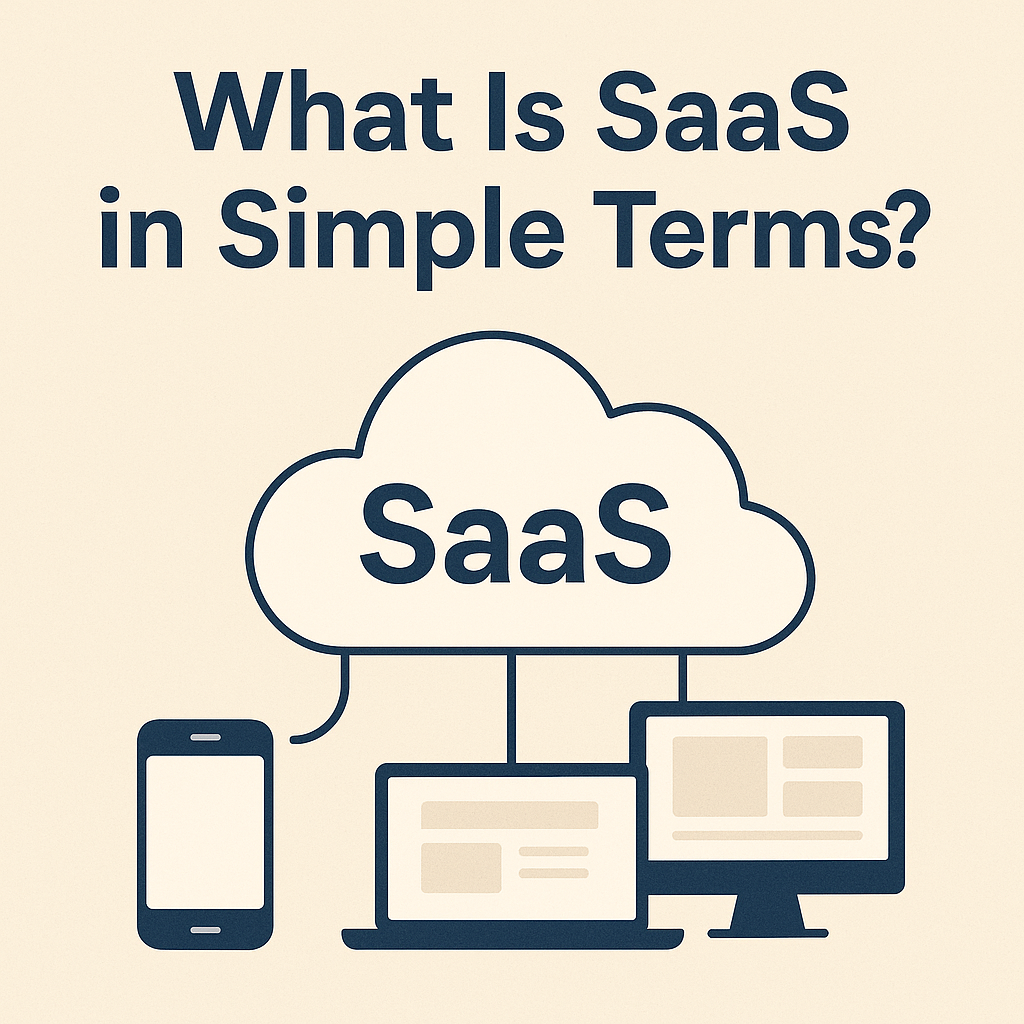
Running a small business today is very different from even a decade ago. Between rising customer expectations, tighter budgets, and remote teams, many entrepreneurs face the same question: How can I stay efficient without burning out or overspending?
That’s where SaaS (Software as a Service) comes in.
Instead of buying expensive software or worrying about servers, small businesses can now tap into affordable, flexible cloud-based tools that grow with them. Whether it’s managing customers, automating tasks, or streamlining communication, SaaS makes enterprise-level tech accessible for everyone.
What Is SaaS in Simple Terms?

SaaS is software delivered over the internet. Instead of installing programs on your computer, you subscribe to a service you can access from anywhere.
Think Netflix for business tools. You don’t own the DVDs — you just log in and start using the platform.
Payment is usually monthly or yearly, keeping costs predictable.
Updates, security, and maintenance are handled by the provider—saving you time and headaches.
Why SaaS Works for Small Businesses
Low upfront costs – No need for expensive hardware or IT setups.
Scalable plans – Start small and upgrade as your team or customer base grows.
Work from anywhere – Perfect for hybrid and remote teams.
Automatic updates – Always have the latest features without extra fees.
Better collaboration – Shared access means your team works in sync.
Real-World SaaS Tools for Small Businesses
Here are some categories of SaaS platforms that can transform daily operations:
Customer Relationship Management (CRM): HubSpot, Zoho CRM
Project Management: Trello, Asana, Monday.com
Finance & Accounting: QuickBooks Online, FreshBooks, Xero
Marketing Automation: Mailchimp, ActiveCampaign
Communication: Slack, Zoom, Google Workspace
Each of these tools replaces outdated manual systems, giving you back valuable time.
How to Choose the Right SaaS for Your Business
Not every platform is the right fit. Before signing up, ask:
What’s my biggest pain point (sales, finance, marketing, collaboration)?
Does this tool integrate with the software I already use?
Is the pricing flexible as my business grows?
How secure is my customer and business data?
Does the provider offer responsive customer support?
Pro tip: Start with free trials. Most SaaS tools let you test before committing.
Final Thoughts
For small businesses, SaaS isn’t just about cutting costs—it’s about unlocking speed, flexibility, and growth opportunities that used to be reserved for large corporations.
If you want to spend less time wrestling with outdated systems and more time serving customers, SaaS can be the game-changer you need.
